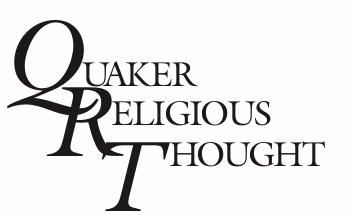
Abstract
Although Quakers have long been known as a peculiar people, would we go as far as to call ourselves absurd? R. Scot Miller in his Gospel of the Absurd: Assemblies of Interpretation, Embodiment, and Faithfulness invites Christians to try on this identity, arguing imperial Christendom coupled with modernist rationalism has often tamed the radical gospel message of Jesus. Miller does not write to a specifically Quaker audience, but he self-identifies as a Quaker and studied at Earlham School of Religion. Through this text, he presents a Christian ethic based in the Bible and that belies his Friends perspective: made up of active “love of neighbors and enemies, non-violence, service to the poor, and egalitarian relationships.”
Recommended Citation
Bock, Cherice
(2019)
"Book Review: R. Scot Miller. Gospel of the Absurd: Assemblies of Interpretation, Embodiment, and Faithfulness (Wipf & Stock, 2017),"
Quaker Religious Thought: Vol. 133, Article 8.
Available at:
https://digitalcommons.georgefox.edu/qrt/vol133/iss1/8
